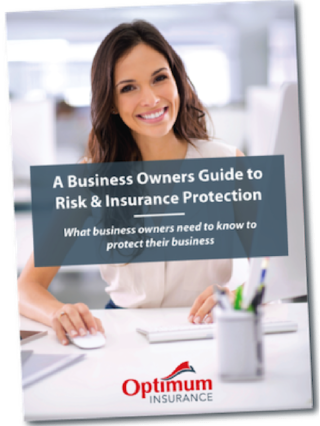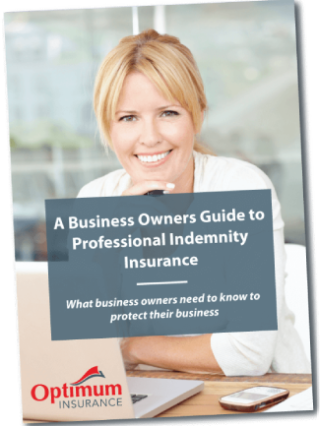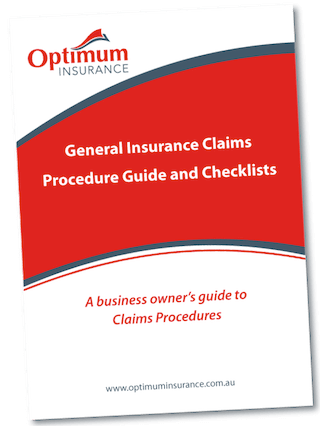Why do I need Personal Accident & Sickness Insurance?
Being a care provider exposes you to a lot of risks. An event can catch you off-guard and unprepared to brace for its financial impact. When a personal accident happens, sustaining an injury or illness comes with unexpected costs and challenges, including hospitalisation, medicine, doctor’s fees, absence from work, and disruption to the income stream.
If you are an employee, your employer is responsible for taking out Worker’s Compensation Insurance in the state in which you are based. However, if you operate a business as an individual (i.e., a sole trader and not as an incorporated company), you are not eligible for that kind of insurance. In this case, you should consider getting covered with Personal Accident Insurance.
The Benefits of Personal Accident Insurance
It is designed to protect against the financial loss that occurs with being off work due to an accident or illness. It helps cover the costs of lost income and can even be extended to cover business expenses.
Accident Cover
Protection for accidents during work or outside of business hours, 24 hours a day, 7 days a week anywhere in the world.
Sickness Cover
Sickness Cover is for illnesses, sickness or disease, condition, syndrome, or mental illness that manifest during the policy period. It should occur solely, directly, and independently of any other conditions or cause, which existed, to make a claim as pre-existing conditions are not covered.
Capital Benefits
Capital Benefits provides a lump sum paid to the insured in the event of death or permanent injury. The accident or injury must have happened during the period of insurance and results in either the following:
- Death within 12 months of the injury date;
- Any other conditions included in the Capital Benefits Conditions within the policy
Business Expenses Cover
Weekly benefits are available to cover business expenses if you are totally disabled. These expenses may include existing employees’ wages, payroll tax, superannuation, workers’ compensation premiums, cleaning expenses, lease payments for equipment and motor vehicles, rent, property rates, and utility bills.
The Exceptions
If in any case during the underwriting process you fall under special circumstances, you may not be eligible for this type of cover. Some common exceptions may include but is not limited to the following:
- Pre-existing conditions (e.g., diabetes, chronic kidney disease, existing injuries)
- Childbirth and pregnancy
- Participation in hazardous activities and professional sports
- Intentional, criminal, and otherwise deliberately caused incidents by the insured
- Acts of terrorism and war
- Influence of drugs and alcohol
I am a director of an incorporated company and have Worker’s Compensation Insurance, do I still need Personal Accident & Sickness Insurance?
In some states in Australia, Worker’s Compensation Insurance does not cover working directors. You may check with your insurer if you need a separate cover.
While Worker’s Compensation Insurance provides cover for accidents during business hours, Personal Accident & Sickness Insurance can provide you with cover for accidents 24/7. There is also an option to include cover for Sickness, Capital Benefits, and Business Expenses. You may consider Personal Accident & Sickness Insurance as an added layer of protection.
What are the factors that affect the cost of Personal Accident & Sickness Insurance?
Every policy is tailored to an individual’s specific needs; and cost varies depending on the insurer’s underwriting criteria.
The following are some of the factors that affect the cost of the policy:
- Role or occupation – People working in high-risk jobs generally pay higher than those that don’t.
- Age – The higher the age, the higher the cost of the policy.
- Type of cover – The cost depends on whether a policy is an Accident only or Accident and Sickness cover and includes ‘Capital Benefits’ or ‘Business Expenses’ payouts.
- Sum insured amount – The higher the premium for the cover, the higher the amount the care provider is eligible to receive.
- Waiting period – Waiting periods commonly start at 7 days and can be increased to 30 days. The longer the waiting period, the lower the premium.
- Benefit period – The benefit period is a minimum of 1 year; however, it can be increased to 2 years, 3 years, 4 years, or 5 years. Increasing the benefit period will attract a higher premium; however, it increases the benefit payable in the event of a claim.
Accidents can happen anytime, which is why it is important to understand whether you have appropriate cover in place.
About Optimum Insurance
Optimum Insurance Services are insurance advisers dedicated to providing expert and tailored opinions, risk/need analysis, comprehensive insurance options, and top-notch service for all kinds of businesses from quote to claim.
If you are interested in learning more about what we can do for you, let’s get in touch.
Disclaimer - This material contains general information only and may not suit your particular circumstance. To decide if a policy is right for you, please carefully read the relevant Product Disclosure Statement (PDS) and/or Policy wording. While we have exercised due care and skill in preparing this information, Optimum Insurance Services (Optimum) does not accept any legal responsibility or liability for negligence or otherwise to you or anyone else who seeks to rely on this information. This includes, without limitation, loss arising from a possible failure of the information to comply with statutory or regulatory requirements or the failure of the information to identify other terms and conditions beyond those considered in this document. You should obtain advice to ensure that your policy provides adequate cover for your circumstances. “Optimum Insurance Services Pty Ltd is a Corporate Authorised Representative of Insurance Advisernet Australia Pty Ltd (Car No. 291220), Australian Financial Services Licence No 240549, ABN 15 003 886 687.”




